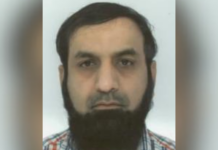The Charity Commission has been forced to reverse its public position that charities could never again fund CAGE after a hearing in the high court yesterday.
In March the regulator, which oversees 170,000 charities, intervened to choke off future funds from the voluntary sector to CAGE. Two charities – the Joseph Rowntree Charitable Trust (JRCT) and the Roddick Foundation – eventually pledged not to “fund Cage either now or in the future.”
The JRCT had given Cage £270,000 between 2007 and 2014, and the Roddick Foundation granted the organisation £120,000 between 2009 and 2012.
The JRCT, which at first resisted demands, claimed it had come under “acute regulatory pressure” to accept the regulator’s requirement – and had been threatened with a far-reaching investigation if it refused to comply.
CAGE claimed the commission should not have sought to block its funding and had over-reached its powers.
The row broke out after CAGE described Mohamed Emwazi, aka Jihadi John, as an “extremely kind” and “beautiful young man.”
CAGE’s research director Asim Qureshi claimed in February that former London student Emwazi – identified as the man in a number of Islamic State beheading videos – had been driven to extremism after UK security services harassed him.
Subscribe to our newsletter and stay updated on the latest news and updates from around the Muslim world!

CAGE later said it had made “mistakes” in its comments about Emwazi, a former client.
CAGE and the Trust told the High Court the Commission had issued a direction it had no power to make, as well as unlawfully fettering the Trust’s discretion over whether or not to fund CAGE should circumstances change.
The Commission, which disputed the accusation, said it had been acting within its powers to give advice and seek assurances from the charities that they would not offer future funding to CAGE.
The case was settled after a day-long hearing with all sides agreeing that Joseph Rowntree’s trustees “must be free to exercise their powers and duties in the light of circumstances existing at the time.”
And the Commission stated it was not seeking to fetter the charity’s discretion to fund CAGE “for all time regardless of changing circumstances.”
“Vindication”
Following the hearing Dr Adnan Siddiqui, Director of CAGE, said the Charity Commission had been forced to climb down from its attempt to prohibit charities from funding CAGE.
He said: “This is an important vindication of our position. We know this will come as a relief to the whole charity sector and the attempt to interfere with the lawful activities of civil society has been blocked.
“This case was never about winning or losing. It was always about testing the extent to which the narrative that underpins the ‘War on Terror’ has seeped into public life. Above all we wanted to empower others in civil society to make a stand against unfair treatment of individuals and organisations dressed up as regulatory activity.
“The Charity Commission took a ‘high-handed’ approach as confirmed by the most senior judge in the country, Lord Chief Justice Thomas. CAGE’s position is that the Commission as an important regulator has been hijacked by apologists for the War on Terror who view all who dissent from their narrative with suspicion.

“Despite the climate of fear the Joseph Rowntree Charitable Trust came forward and stood with us. Many in civil society applauded us for taking a stand. The charities sector supported us for fighting their corner and vocalising their experiences…
“We now hope that the Charity Commission will take a considered approach in exercising its powers and only intervene where there is clear evidence of wrongdoing. As a regulator it should remain impartial and not be driven by the prevailing political aims of a few ideologues in government or sections of the media.
“We thank the Joseph Rowntree for standing with us in this struggle against injustice and for equality. With the Government’s announcements of new proposals for counter extremism we believe that we are in danger of moving toward an era of 21st century McCarthyism, in which politically motivated witch hunts could be used to persecute innocent people in the guise of counter terrorism. CAGE will continue to expose and challenge such policies.”
On the other hand, the Charity Commission said it welcomed CAGE’s decision to withdraw their application for judicial review.
“For the Charity Commission this case was always about defending our responsibility for protecting the public trust and confidence in charity. It was on that basis we sought assurances from trustees about the funding of CAGE,” it said in a statement.
“It has always been clear that trustees have the right to exercise their discretion when acting exclusively in the best interests of their charity and within the objects and powers, subject to the appropriate supervision by the commission as the charity regulator.
“We regret that this judicial process has dragged out, consuming charitable and public funds.”






















